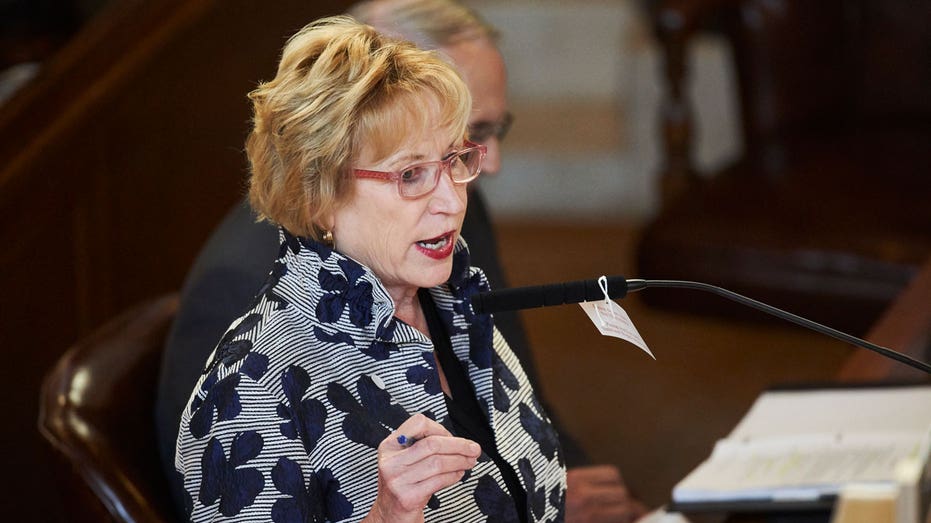Nebraska lawmakers are debating a bill that would raise the state’s sales tax by 1 cent to 6.5% on every taxable dollar spent — which would make it among the highest in the country.
Lawmakers expected to take a vote later Tuesday on whether to advance the bill to a second of three rounds of debate in Nebraska’s unique one-chamber legislature. In addition to raising the state’s current 5.5% sales tax and expanding it to include more services — such as advertising costs — it would add new taxes to candy and soda pop and would tax hemp and CBD products at 100%.
NEBRASKA GOVERNOR TIGHTENS RESTRICTIONS ON GENDER TRANSITION TREATMENTS FOR MINORS
But the bill would also cut sales tax currently added to utility bills — a proposal made to address complaints that a sales tax increase would disproportionately affect lower income people.
Supporters of the bill pushed back on that argument, noting that grocery food items would still be exempt from sales tax in Nebraska. The bill is aimed at higher income residents with more disposable income, not those living in poverty, said Omaha Sen. Lou Ann Linehan.
For those struggling to get by, “are you spending a lot of money on handbags,” Linehan asked. “Are you spending $200 on new shoes? This bill affects people who have money to spend on those things.”
Linehan has struggled to find enough votes to advance the bill. Critics include both left-leaning lawmakers, who say a sales tax inherently puts more burden on lower income populations, and far-right conservative lawmakers who oppose any increase in taxes.
“On average, the 5% of Nebraskans with incomes over $252,600 will pay less as a result of the changes, while for 8 in 10 Nebraskans, the sales tax increase will on average be greater than any property tax cut they may receive,” taxation watchdog group Open Sky Policy Institute said.
The bill is key to Republican Gov. Jim Pillen’s plan to slash soaring property taxes, which reached a high of $5.3 billion in 2023 as housing prices have soared in recent years. Because local assessors are required to assess residential property at around 100% of market value, some people — particularly the elderly who are on fixed incomes — are being priced out homes they’ve owned for years because they can’t afford the tax bill, Pillen said.
This year’s legislative session is set to end by April 18. Pillen had previously promised to called lawmakers back for a special session if property tax relief efforts fail to pass.



